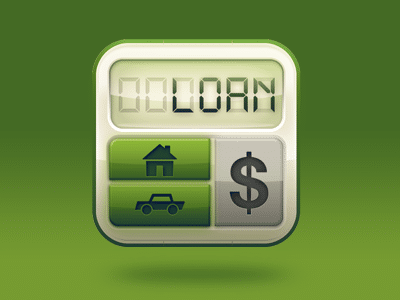If you need a loan for whatever reason, your credit score is going to have a part to play. Your credit score is what banks and lenders use to determine how reliable you are. It’s far from a perfect system, but we all have to play by its rules to get credit. Which is why it’s so frustrating when it seems any route you take will bring you problems.
You might have heard that applying for a loan can hurt your credit score. But a credit score exists for this purpose, so why should that be? Is there any truth to this?
Unfortunately, there is truth to it, but you may be surprised as to why. By knowing the reasons behind it, as well as the difference between a hard credit check and a soft credit check, you can ensure that you cause minimal damage to your credit score.
Why does a loan application hurt my credit score?
A loan application itself does not hurt your credit score. Rather, it is the act of a company checking your credit score that hurts your credit score. That may sound strange, but there is reasoning behind it. Statistically, people who have more credit inquiries are more likely to declare bankruptcy.
There is a disconnect here between statistics and reality. The correlation exists, but it is not some magic formula. The reality is that people with more credit inquiries have often been rejected for a number of loans. Tracking the amount of credit inquiries is the most sure-fire way for the system to record the number of rejections you may have had.
This inevitably impacts people who simply applied to lots of lenders in order to compare quotes. For this reason, you should only apply to lenders once you are sure you both want their loan and will get it.
But how can you be sure you will get a loan if a credit check is going to hurt your credit score?
Hard credit checks vs soft credit checks
There are different types of credit checks. A hard check or inquiry is one in which lenders check your credit score. A soft credit check is one in which an application for credit is not at stake.
Soft credit checks may be carried out by potential employers, insurers, and current creditors. When you check your own credit score, that is also considered a soft credit check.
As such, you can get your credit score without worrying about the check itself impacting you. Once you have your score, you can then try to get information on which loans you will be able to get based on it. If you are unlikely to get a loan because of your credit score, you shouldn’t apply on the off chance you will be approved, as it is these kinds of checks that harm your credit score.
Are there exceptions?
All hard credit checks can have an impact on your credit score. However, in certain cases, applying to multiple lenders in a short period of time is considered as a single hard inquiry. This is true in the case of home loans, student loans, and auto financing. Because these applications are done as due diligence, credit regulators give you leeway.
These checks must be carried out within a certain period of time which varies from 14 to 45 days, depending on different methods of calculating your score.
How worried should I be?
So, should you avoid hard credit checks at all costs? A hard inquiry will only have a negative impact of up to 5 points. If your score is on the edge, this could be significant. However, in most cases it will not have a major impact on your life.
Furthermore, these point deductions are cancelled out relatively quickly, as long as you are not doing other actions which harm your credit score. It is major debt and missed payments that leave the longest impact.
Don’t worry too much about the impact of a hard credit check. Ideally, simply do a soft check yourself and apply for loans you know you can get.
For more great All Things Finance articles, read these:
How Much Gold Does The Vatican Have?










